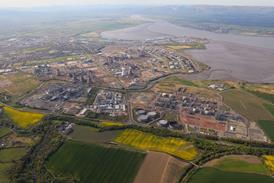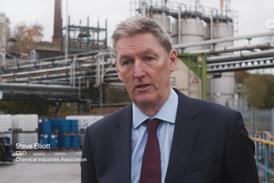If we are to sustain and grow this contribution, close cooperation between Government and business, data driven policy measures and a just transition are key to improving the UK’s business environment for sectors such as ours who operate in global markets.
The impacts of climate change have not only been observed on our environment but also our societies and economies around the world. International action and co-operation is more vital than ever to successfully fight this global challenge. In line with the Paris Agreement, the global average temperature rise this century will need to remain well below 2 degrees Celsius and efforts will need to go further to limit the temperature increase to 1.5 degrees Celsius. Achieving this will require both technological and policy measures to be front-end loaded and to be delivered at pace. The UK has rightly made a commitment to net zero by 2050, one which our sector – the UK’s biggest manufacturing exporter and one of its largest energy users – has already publicly stated its willingness and capability to support, subject to its international competitiveness and public investment in technology and infrastructure.
The chemicals sector is uniquely placed to provide both a direct and indirect contribution to achieving net zero by 2050. As we are continuously working to improve our emissions performance, indirectly, we are ‘the builder’ of a net zero economy with our solutions used in homes, at work and throughout everyday life, saving at least 2 tonnes of greenhouse gases for every 1 tonne we directly emit.
Looking ahead, UK chemical companies both independently and through cluster project plans are playing a central role to successfully decarbonising the UK economy whilst creating jobs in regions where they are most needed. If we are to sustain and grow this contribution, close cooperation between Government and business, data driven policy measures and a just transition are key to improving the UK’s business environment for sectors such as ours who operate in global markets. The transformational technologies to reach net zero by 2050 are here in the UK. But the fundamental challenge is securing a policy framework and enabling successful decarbonisation, needed through achieving:
- Secure and competitive energy supplies
- The next generation of climate policies and carbon reduction schemes
- Successful development and deployment of step change technologies and infrastructure.
This will not only ensure the UK avoids offshoring and importing carbon intensive goods and ultimately risk its leadership in the fight against climate change but, more positively, enable an innovative industry, such as ours to continue investing, creating and delivering low carbon solutions in the UK. The fight against climate change is one that needs to be fought and one that cannot be fought without chemistry and chemicals.

Accelerating Britain’s Net Zero economy
If we are to sustain and grow this contribution, close cooperation between Government and business, data driven policy measures and a just transition are key to improving the UK’s business environment for sectors such as ours who operate in global markets.
DOWNLOAD















